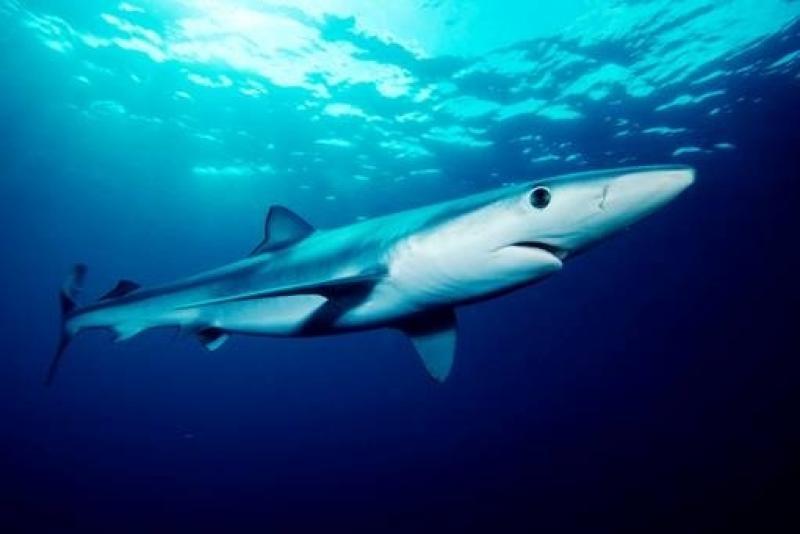
NOAA partners with U.K. anglers and scientists to learn more about blue sharks
by NOAA Fisheries 14 May 2024 08:28 UTC

Blue Shark © NOAA Fisheries
NOAA shark researchers are kicking off an international science initiative this month to tag up to 2,000 mature blue sharks off the coast of the United Kingdom. We are partnering with seven U.K. scientific and angling organizations as well as the international body that manages sharks.
Recent genetic studies suggest that there could be a distinct Mediterranean blue shark stock, in addition to the north and south Atlantic stock components scientists currently recognize. The data collected may shed light not only on this question but also on blue shark migratory corridors for mating and pupping. These corridors may be changing due to climate change.
"The shark anglers and fishing organizations in Great Britain have an excellent history of stewardship and data collection in their fishery. This collaboration is an ideal way to focus international efforts to better manage a trans-Atlantic stock," said Michelle Passerotti. She is a shark researcher at the NOAA Fisheries’ Narragansett Laboratory and leads the project.
Most of the deployed tags will be conventional, but there are also five pop-up satellite archival tags. These tags are intended for mature female blue sharks. The International Commission for the Conservation of Atlantic Tunas and colleagues at NOAA’s Southeast Fisheries Science Center provided these tags. We will use them to study both potential climate-driven shifts in migratory corridors and stock identification in the eastern Atlantic Ocean.
The project leverages the existing citizen science partnership between our Cooperative Shark Tagging Program and anglers in the United Kingdom. The tagging program relies on anglers and commercial fishermen as well as scientists to tag and report recaptured sharks. Since 1962, more than 320,000 sharks have been tagged by thousands of our tagging partners along the Gulf and Atlantic coasts of the United States, Canada, and Europe.
John McMaster is one of the originators of the Pat Smith Database, a recreational shark catch database that dates to the 1950s. "The Pat Smith Database has long recognized the vast pool of knowledge which exists within the recreational sea angling sector. Many charter skippers and sea anglers don't recognise it, but they are in fact 'experts by experience,'" said McMaster. "Skippers and anglers are excited about engaging with this project, which will increase our knowledge of this magnificent species and, equally importantly, provide a platform for us to continue to work together."
As part of the project, there will be two workshops on July 10 in the United Kingdom. Organizing partners will meet during the day at the Marine Biological Association in Plymouth, U.K., followed by an evening outreach session for interested fishermen at the Heritage Center in Looe.
"We are incredibly excited to kick off this project and are very grateful to our U.K. collaborators for all their efforts to bring this to fruition," said Passerotti, "especially Simon Thomas with University of York, Bryce Stewart with Marine Biological Association UK, and John McMaster with Pat Smith Database."
The project is being coordinated with support from the: